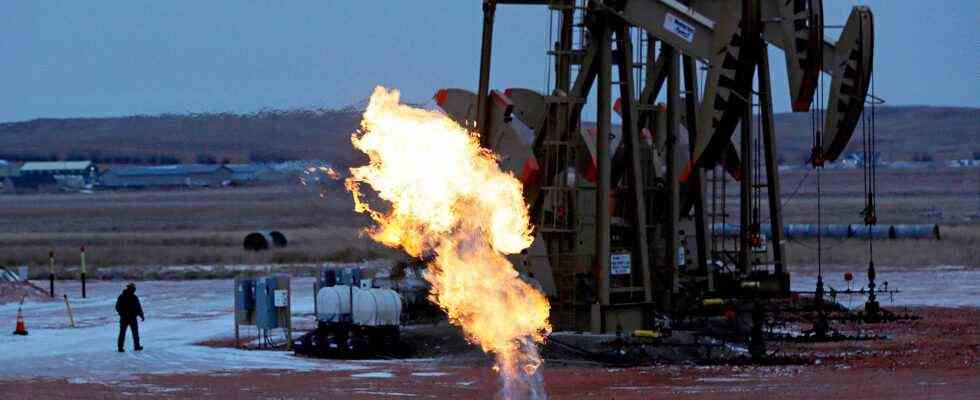Status: October 21, 2021 3:49 p.m.
Documents should prove the attempted influence of individual states on the UN climate report. Attempts have been made to weaken the demand for a move away from fossil fuels.
According to a report by the BBC, several countries have tried to downplay the need to move away from fossil fuels quickly in a UN report on climate change. This emerges from documents of the Intergovernmental Panel on Climate Change (IPCC), which Greenpeace activists were able to obtain and which they shared with the BBC. Accordingly, among others, Saudi Arabia and Australia are said to have campaigned for calls for a quick end to fossil fuels to be weakened or completely deleted in the report.
Around 32,000 comments on the draft
The report is an important basis for the negotiations at the upcoming UN world climate conference in Glasgow at the beginning of November. The IPCC, or the Intergovernmental Panel on Climate Change, as the panel is known in German, stressed that government comments are an essential part of the review process for the draft report, which is produced every six to seven years. The scientists involved are under no pressure whatsoever to accept the proposals.
The documents shared with journalists include around 32,000 submissions from various governments, companies and interest groups, according to the BBC. For the most part, they are drafted in a constructive manner and aim to improve the quality of the final UN report, according to the BBC.
Switzerland, among others, is said to have tried, for example, to weaken references to the importance of financial aid from richer to poorer countries in the fight against climate change. Arguments against the recommendation to reduce meat consumption had come from Brazil and Argentina.
Several countries, including China and Japan, advocate technologies that bind rather than prevent CO2 emissions. According to the BBC, several mainly Eastern European countries are campaigning for a more positive view of nuclear energy.

